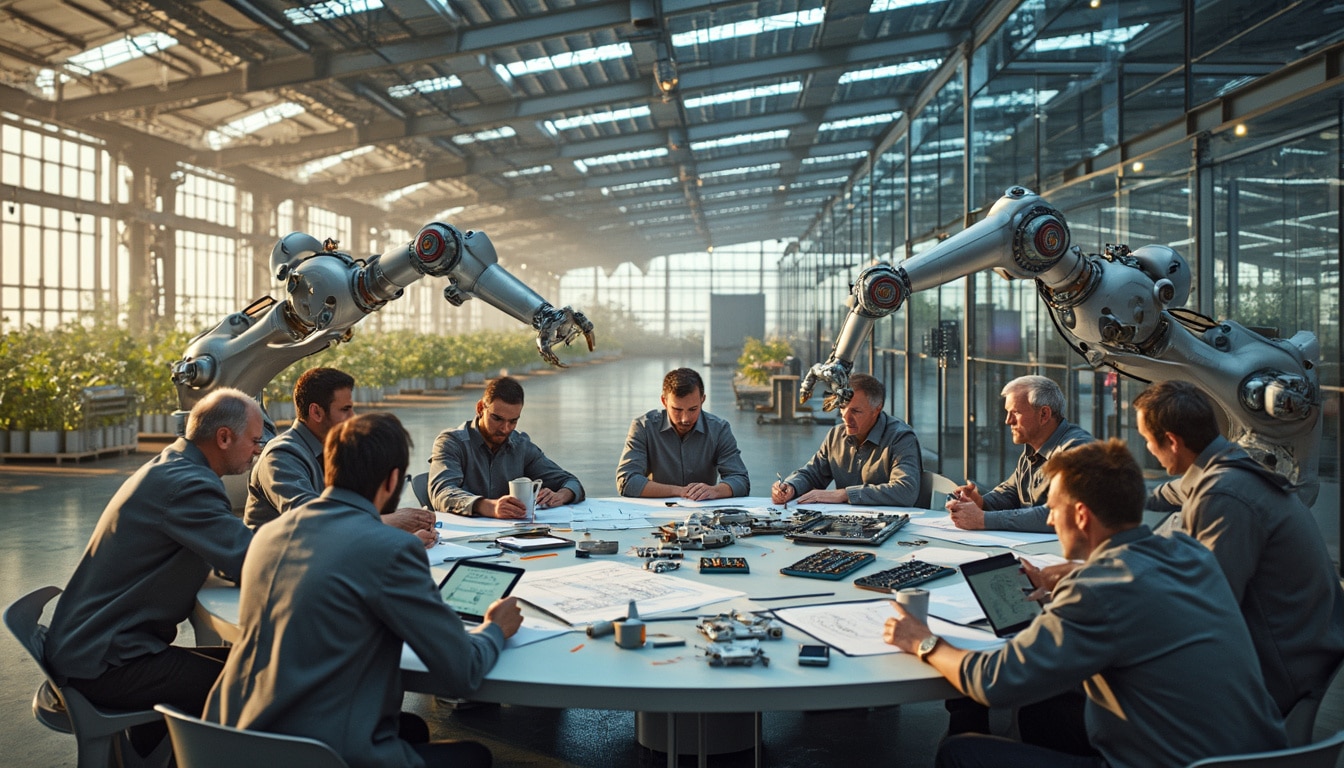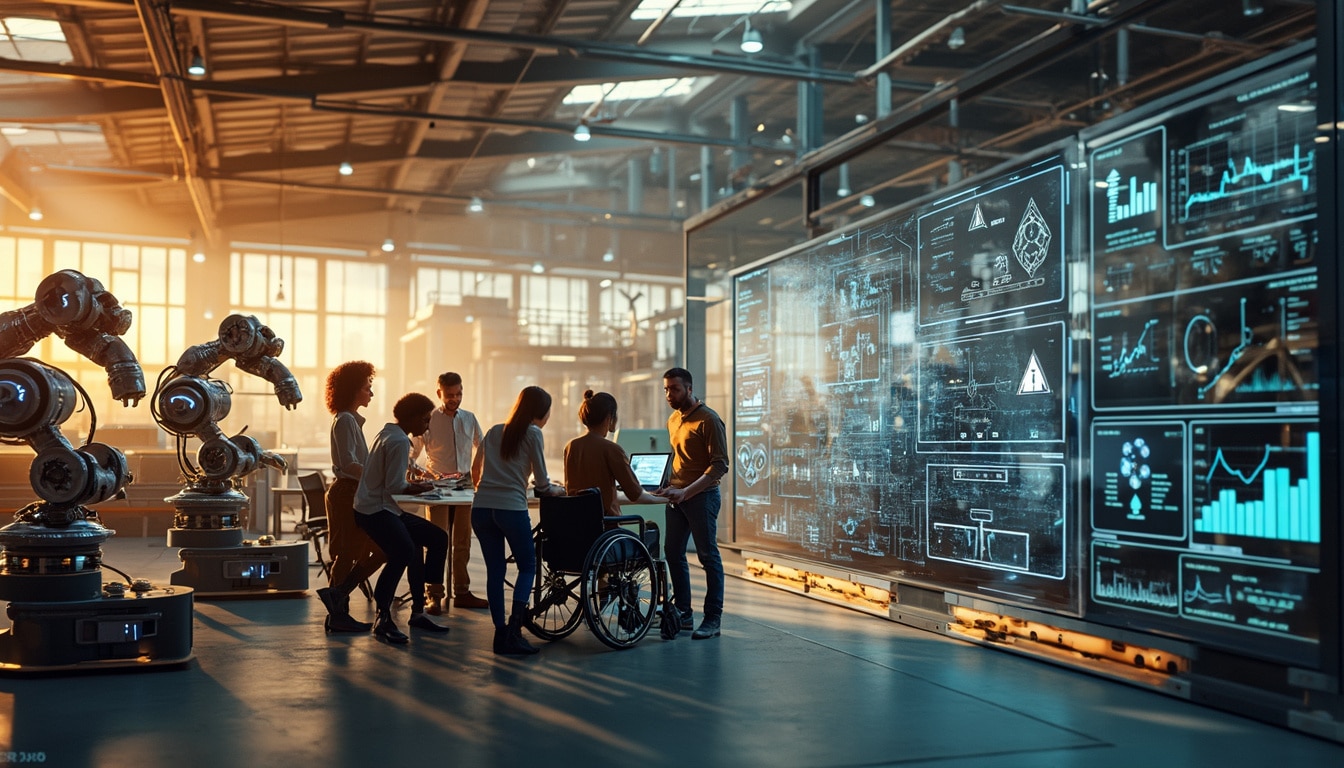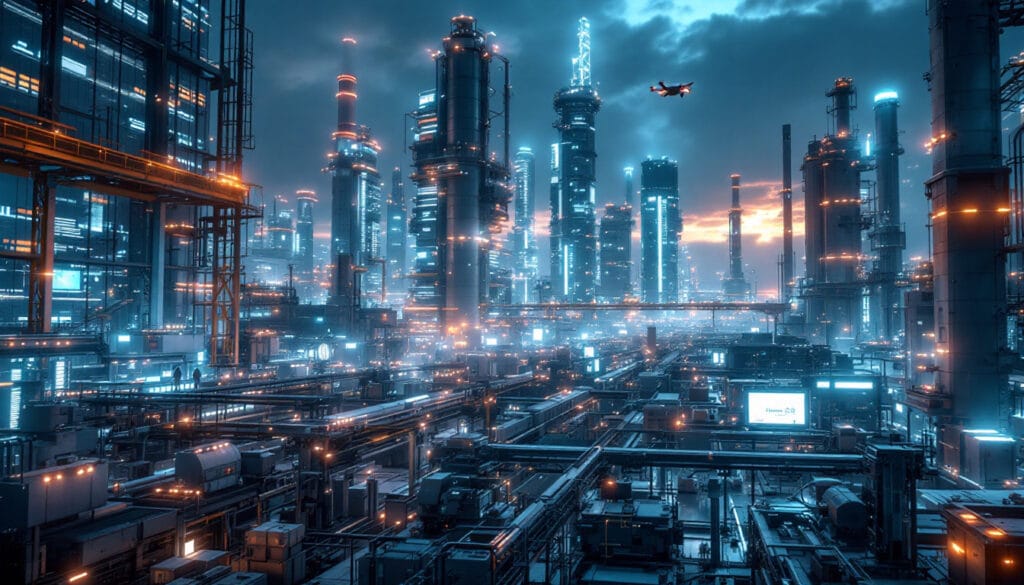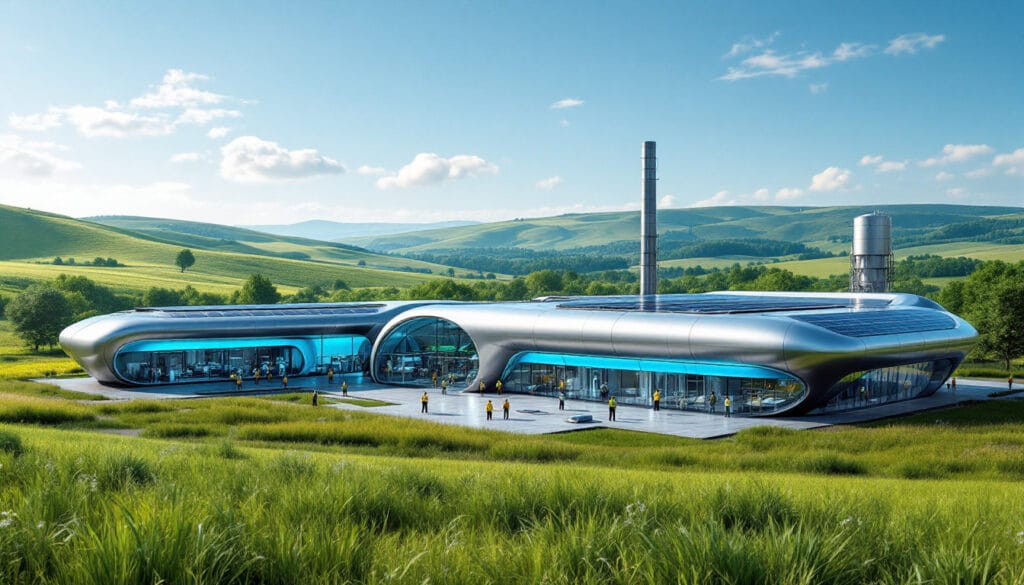The manufacturing industry is undergoing a profound transformation thanks to the innovations of Industry 4.0. With technologies such as artificial intelligence, the Internet of Things, and Big Data analytics, it is now possible to create intelligent and sustainable ecosystems. This revolution offers the opportunity to optimize manufacturing processes and improve environmental impact. By harnessing these advanced technologies, companies can not only develop more sustainable products but also adapt their operations in real-time to meet the growing demand in a responsible and efficient manner.

Table des matières
ToggleRedefining manufacturing processes
The era of Industry 4.0 has paved the way for the redefinition of manufacturing processes by introducing cutting-edge digital technologies. The introduction of artificial intelligence and the Internet of Things is transforming traditional methods, allowing for unprecedented automation and optimization. Modern factories are saying goodbye to old methods to adopt interconnected systems that ensure smoother and more efficient operations. Every machine, sensor, and device is connected, forming what is referred to as the “digital thread” that links all operations from the factory floor to the top of the hierarchy.
Integration of digital technologies
The integration of digital technologies in the manufacturing sector is not limited to improving operational efficiency. It also involves a rethinking of employee responsibilities and company culture. With automated processes and real-time data analytics, employees can now focus on higher-value tasks, fostering innovation and creativity. The deployment of these technologies requires a mindset shift, necessitating continuous training and adaptation of worker skills to fully weave AI into the fabric of contemporary manufacturing.
Additionally, the use of algorithms based on artificial intelligence enables manufacturers to anticipate and mitigate potential disruptions in the supply chain. Unprecedentedly, it is now possible to predict demand, adjust inventory levels accordingly, and optimize logistics to maintain an uninterrupted and efficient production chain. The impact is also felt in sustainability efforts, where enhanced resource optimization leads to waste reduction and responsible energy management.
Towards sustainable manufacturing
In this increasingly environmentally conscious world, sustainability has become a priority. The use of technology in the manufacturing industry offers a unique opportunity to reduce the environmental footprint. Smart IoT sensors today accurately measure energy and water consumption, helping to create greener and more efficient factories. Moreover, AI-driven tools facilitate innovation in product design by simulating the potential sustainable impact of each project even before it hits the production lines. All of this supports the rise of a circular economy integrated at the very heart of the manufacturing process.




